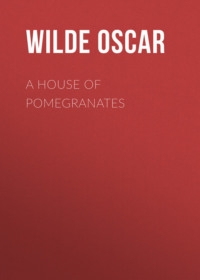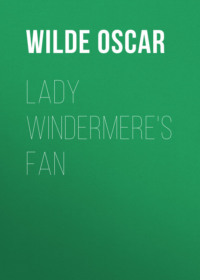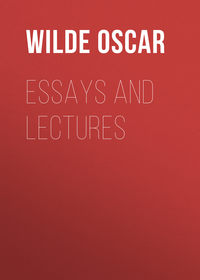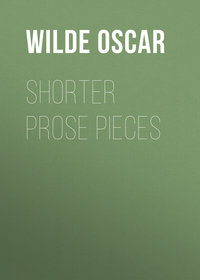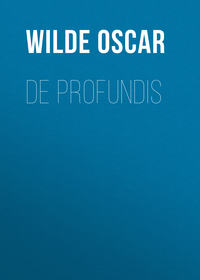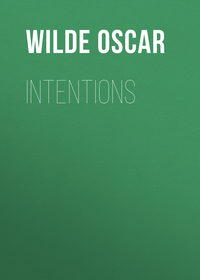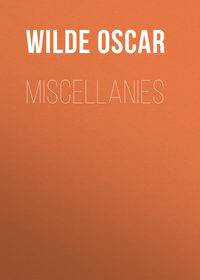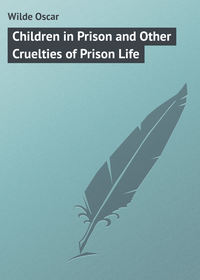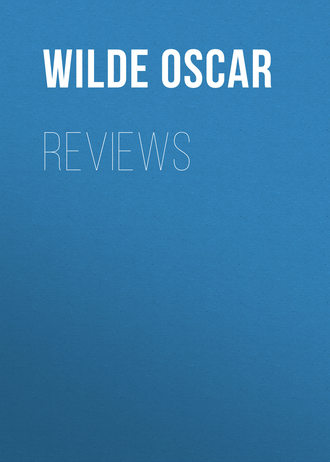 полная версия
полная версияReviews
All through the book we come across interesting and amusing things. She gets St. Hilaire to order a large, sensible bonnet for her in Paris, which was at once christened the ‘Aristotelian,’ and was supposed to be the only useful bonnet in England. Grote has to leave Paris after the coup d’état, he tells her, because he cannot bear to see the establishment of a Greek tyrant. Alfred de Vigny, Macaulay, John Stirling, Southey, Alexis de Tocqueville, Hallam, and Jean Jacques Ampère all contribute to these pleasant pages. She seems to have inspired the warmest feelings of friendship in those who knew her. Guizot writes to her: ‘Madame de Staël used to say that the best thing in the world was a serious Frenchman. I turn the compliment, and say that the best thing in the world is an affectionate Englishman. How much more an Englishwoman! Given equal qualities, a woman is always more charming than a man.’
Lucie Austin, afterwards Lady Duff Gordon, was born in 1821. Her chief playfellow was John Stuart Mill, and Jeremy Bentham’s garden was her playground. She was a lovely, romantic child, who was always wanting the flowers to talk to her, and used to invent the most wonderful stories about animals, of whom she was passionately fond. In 1834 Mrs. Austin decided on leaving England, and Sydney Smith wrote his immortal letter to the little girl:
Lucie, Lucie, my dear child, don’t tear your frock: tearing frocks is not of itself a proof of genius. But write as your mother writes, act as your mother acts: be frank, loyal, affectionate, simple, honest, and then integrity or laceration of frock is of little import. And Lucie, dear child, mind your arithmetic. You know in the first sum of yours I ever saw there was a mistake. You had carried two (as a cab is licensed to do), and you ought, dear Lucie, to have carried but one. Is this a trifle? What would life be without arithmetic but a scene of horrors? You are going to Boulogne, the city of debts, peopled by men who have never understood arithmetic. By the time you return, I shall probably have received my first paralytic stroke, and shall have lost all recollection of you. Therefore I now give you my parting advice – don’t marry anybody who has not a tolerable understanding and a thousand a year. And God bless you, dear child.
At Boulogne she sat next Heine at table d’hôte. ‘He heard me speak German to my mother, and soon began to talk to me, and then said, “When you go back to England, you can tell your friends that you have seen Heinrich Heine.” I replied, “And who is Heinrich Heine?” He laughed heartily and took no offence at my ignorance; and we used to lounge on the end of the pier together, where he told me stories in which fish, mermaids, water-sprites and a very funny old French fiddler with a poodle were mixed up in the most fanciful manner, sometimes humorous, and very often pathetic, especially when the water-sprites brought him greetings from the “Nord See.” He was.. so kind to me and so sarcastic to every one else.’ Twenty years afterwards the little girl whose ‘braune Augen’ Heine had celebrated in his charming poem Wenn ich an deinem Hause, used to go and see the dying poet in Paris. ‘It does one good,’ he said to her, ‘to see a woman who does not carry about a broken heart, to be mended by all sorts of men, like the women here, who do not see that a total want of heart is their real failing.’ On another occasion he said to her: ‘I have now made peace with the whole world, and at last also with God, who sends thee to me as a beautiful angel of death: I shall certainly soon die.’ Lady Duff Gordon said to him: ‘Poor Poet, do you still retain such splendid illusions, that you transform a travelling Englishwoman into Azrael? That used not to be the case, for you always disliked us.’ He answered: ‘Yes, I do not know what possessed me to dislike the English… it really was only petulance; I never hated them, indeed, I never knew them. I was only once in England, but knew no one, and found London very dreary, and the people and the streets odious. But England has revenged herself well; she has sent me most excellent friends – thyself and Milnes, that good Milnes.’
There are delightful letters from Dicky Doyle here, with the most amusing drawings, one of the present Sir Robert Peel as he made his maiden speech in the House being excellent; and the various descriptions of Hassan’s performances are extremely amusing. Hassan was a black boy, who had been turned away by his master because he was going blind, and was found by Lady Duff Gordon one night sitting on her doorstep. She took care of him, and had him cured, and he seems to have been a constant source of delight to every one. On one occasion, ‘when Prince Louis Napoleon (the late Emperor of the French) came in unexpectedly, he gravely said: “Please, my Lady, I ran out and bought twopenny worth of sprats for the Prince, and for the honour of the house.”’ Here is an amusing letter from Mrs. Norton:
MY DEAR LUCIE, – We have never thanked you for the red Pots, which no early Christian should be without, and which add that finishing stroke to the splendour of our demesne, which was supposed to depend on a roc’s egg, in less intelligent times. We have now a warm Pompeian appearance, and the constant contemplation of these classical objects favours the beauty of the facial line; for what can be deduced from the great fact, apparent in all the states of antiquity, that straight noses were the ancient custom, but the logical assumption that the constant habit of turning up the nose at unsightly objects – such as the National Gallery and other offensive and obtrusive things – has produced the modern divergence from the true and proper line of profile? I rejoice to think that we ourselves are exempt. I attribute this to our love of Pompeian Pots (on account of the beauty and distinction of this Pot’s shape I spell it with a big P), which has kept us straight in a world of crookedness. The pursuit of profiles under difficulties – how much more rare than a pursuit of knowledge! Talk of setting good examples before our children! Bah! let us set good Pompeian Pots before our children, and when they grow up they will not depart from them.
Lady Duff Gordon’s Letters from the Cape, and her brilliant translation of The Amber Witch, are, of course, well known. The latter book was, with Lady Wilde’s translation of Sidonia the Sorceress, my favourite romantic reading when a boy. Her letters from Egypt are wonderfully vivid and picturesque. Here is an interesting bit of art criticism:
Sheykh Yoosuf laughed so heartily over a print in an illustrated paper from a picture of Hilton’s of Rebekah at the well, with the old ‘wekeel’ of ‘Sidi Ibraheem’ (Abraham’s chief servant) kneeling before the girl he was sent to fetch, like an old fool without his turban, and Rebekah and the other girls in queer fancy dresses, and the camels with snouts like pigs. ‘If the painter could not go into “Es Sham” to see how the Arab really look,’ said Sheykh Yoosuf, ‘why did he not paint a well in England, with girls like English peasants – at least it would have looked natural to English people? and the wekeel would not seem so like a madman if he had taken off a hat!’ I cordially agree with Yoosuf’s art criticism. Fancy pictures of Eastern things are hopelessly absurd.
Mrs. Ross has certainly produced a most fascinating volume, and her book is one of the books of the season. It is edited with tact and judgment.
* * * * *Caroline, by Lady Lindsay, is certainly Lady Lindsay’s best work. It is written in a very clever modern style, and is as full of esprit and wit as it is of subtle psychological insight. Caroline is an heiress, who, coming downstairs at a Continental hotel, falls into the arms of a charming, penniless young man. The hero of the novel is the young man’s friend, Lord Lexamont, who makes the ‘great renunciation,’ and succeeds in being fine without being priggish, and Quixotic without being ridiculous. Miss Ffoulkes, the elderly spinster, is a capital character, and, indeed, the whole book is cleverly written. It has also the advantage of being in only one volume. The influence of Mudie on literature, the baneful influence of the circulating library, is clearly on the wane. The gain to literature is incalculable. English novels were becoming very tedious with their three volumes of padding – at least, the second volume was always padding – and extremely indigestible. A reckless punster once remarked to me, apropos of English novels, that ‘the proof of the padding is in the eating,’ and certainly English fiction has been very heavy – heavy with the best intentions. Lady Lindsay’s book is a sign that better things are in store for us. She is brief and bright.
* * * * *What are the best books to give as Christmas presents to good girls who are always pretty, or to pretty girls who are occasionally good? People are so fond of giving away what they do not want themselves, that charity is largely on the increase. But with this kind of charity I have not much sympathy. If one gives away a book, it should be a charming book – so charming, that one regrets having given it, and would not take it back. Looking over the Christmas books sent to me by various publishers, I find that these are the best and the most pleasing: Gleanings from the ‘Graphic,’ by Randolph Caldecott, a most fascinating volume full of sketches that have real wit and humour of line, and are not simply dependent on what the French call the légende, the literary explanation; Meg’s Friend, by Alice Corkran, one of our most delicate and graceful prose-writers in the sphere of fiction, and one whose work has the rare artistic qualities of refinement and simplicity; Under False Colours, by Sarah Doudney, an excellent story; The Fisherman’s Daughter, by Florence Montgomery, the author of Misunderstood, a tale with real charm of idea and treatment; Under a Cloud, by the author of The Atelier du Lys, and quite worthy of its author; The Third Miss St. Quentin, by Mrs. Molesworth, and A Christmas Posy from the same fascinating pen, and with delightful illustrations by Walter Crane. Miss Rosa Mulholland’s Giannetta and Miss Agnes Giberne’s Ralph Hardcastle’s Will are also admirable books for presents, and the bound volume of Atalanta has much that is delightful both in art and in literature.
The prettiest, indeed the most beautiful, book from an artistic point of view is undoubtedly Mr. Walter Crane’s Flora’s Feast. It is an imaginative Masque of Flowers, and as lovely in colour as it is exquisite in design. It shows us the whole pomp and pageant of the year, the Snowdrops like white-crested knights, the little naked Crocus kneeling to catch the sunlight in his golden chalice, the Daffodils blowing their trumpets like young hunters, the Anemones with their wind-blown raiment, the green-kirtled Marsh-marigolds, and the ‘Lady-smocks all silver-white,’ tripping over the meadows like Arcadian milk-maids. Buttercups are here, and the white-plumed Thorn in spiky armour, and the Crown-imperial borne in stately procession, and red-bannered Tulips, and Hyacinths with their spring bells, and Chaucer’s Daisy —
small and sweet,Si douce est la Marguerite.Gorgeous Peonies, and Columbines ‘that drew the car of Venus,’ and the Rose with her lover, and the stately white-vestured Lilies, and wide staring Ox-eyes, and scarlet Poppies pass before us. There are Primroses and Corncockles, Chrysanthemums in robes of rich brocade, Sunflowers and tall Hollyhocks, and pale Christmas Roses. The designs for the Daffodils, the wild Roses, the Convolvulus, and the Hollyhock are admirable, and would be beautiful in embroidery or in any precious material. Indeed, any one who wishes to find beautiful designs cannot do better than get the book. It is, in its way, a little masterpiece, and its grace and fancy, and beauty of line and colour, cannot be over-estimated. The Greeks gave human form to wood and stream, and saw Nature best in Naiad or in Dryad. Mr. Crane, with something of Gothic fantasy, has caught the Greek feeling, the love of personification, the passion for representing things under the conditions of the human form. The flowers are to him so many knights and ladies, page-boys or shepherd-boys, divine nymphs or simple girls, and in their fair bodies or fanciful raiment one can see the flower’s very form and absolute essence, so that one loves their artistic truth no less than their artistic beauty. This book contains some of the best work Mr. Crane has ever done. His art is never so successful as when it is entirely remote from life. The slightest touch of actuality seems to kill it. It lives, or should live, in a world of its own fashioning. It is decorative in its complete subordination of fact to beauty of effect, in the grandeur of its curves and lines, in its entirely imaginative treatment. Almost every page of this book gives a suggestion for some rich tapestry, some fine screen, some painted cassone, some carving in wood or ivory.
* * * * *From Messrs. Hildesheimer and Faulkner I have received a large collection of Christmas cards and illustrated books. One of the latter, an édition de luxe of Sheridan’s Here’s to the Maiden of Bashful Fifteen, is very cleverly illustrated by Miss Alice Havers and Mr. Ernest Wilson. It seems to me, however, that there is a danger of modern illustration becoming too pictorial. What we need is good book-ornament, decorative ornament that will go with type and printing, and give to each page a harmony and unity of effect. Merely dotting a page with reproductions of water-colour drawings will not do. It is true that Japanese art, which is essentially decorative, is pictorial also. But the Japanese have the most wonderful delicacy of touch, and with a science so subtle that it gives the effect of exquisite accident, they can by mere placing make an undecorated space decorative. There is also an intimate connection between their art and their handwriting or printed characters. They both go together, and show the same feeling for form and line. Our aim should be to discover some mode of illustration that will harmonise with the shapes of our letters. At present there is a discord between our pictorial illustrations and our unpictorial type. The former are too essentially imitative in character, and often disturb a page instead of decorating it. However, I suppose we must regard most of these Christmas books merely as books of pictures, with a running accompaniment of explanatory text. As the text, as a rule, consists of poetry, this is putting the poet in a very subordinate position; but the poetry in the books of this kind is not, as a rule, of a very high order of excellence.
(1) Three Generations of English Women. Memoirs and Correspondence of Susannah Taylor, Sarah Austin, and Lady Duff Gordon. By Janet Ross, Author of Italian Sketches, Land of Manfred, etc. (Fisher Unwin.)
(2) Caroline. By Lady Lindsay. (Bentley and Son.)
(3) Gleanings from the ‘Graphic.’ By Randolph Caldecott. (Routledge and Sons.)
(4) Meg’s Friend. By Alice Corkran. (Blackie and Sons.)
(5) Under False Colours. By Sarah Doudney. (Blackie and Sons.)
(6) The Fisherman’s Daughter. By Florence Montgomery. (Hatchards.)
(7) Under a Cloud. By the Author of The Atelier du Lys. (Hatchards.)
(8) The Third Miss St. Quentin. By Mrs. Molesworth. (Hatchards.)
(9) A Christmas Posy. By Mrs. Molesworth. Illustrated by Walter Crane. (Hatchards.)
(10) Giannetta. A Girl’s Story of Herself. By Rosa Mulholland. (Blackie and Sons.)
(11) Ralph Hardcastle’s Will. By Agnes Giberne. (Hatchards.)
(12) Flora’s Feast. A Masque of Flowers. Penned and Pictured by Walter Crane. (Cassell and Co.)
(13) Here’s to the Maiden of Bashful Fifteen. By Richard Brinsley Sheridan. Illustrated by Alice Havers and Ernest Wilson. (Hildesheimer and Faulkner.)
POETRY AND PRISON
(Pall Mall Gazette, January 3, 1889.)
Prison has had an admirable effect on Mr. Wilfrid Blunt as a poet. The Love Sonnets of Proteus, in spite of their clever Musset-like modernities and their swift brilliant wit, were but affected or fantastic at best. They were simply the records of passing moods and moments, of which some were sad and others sweet, and not a few shameful. Their subject was not of high or serious import. They contained much that was wilful and weak. In Vinculis, upon the other hand, is a book that stirs one by its fine sincerity of purpose, its lofty and impassioned thought, its depth and ardour of intense feeling. ‘Imprisonment,’ says Mr. Blunt in his preface, ‘is a reality of discipline most useful to the modern soul, lapped as it is in physical sloth and self-indulgence. Like a sickness or a spiritual retreat it purifies and ennobles; and the soul emerges from it stronger and more self-contained.’ To him, certainly, it has been a mode of purification. The opening sonnets, composed in the bleak cell of Galway Gaol, and written down on the fly-leaves of the prisoner’s prayer-book, are full of things nobly conceived and nobly uttered, and show that though Mr. Balfour may enforce ‘plain living’ by his prison regulations, he cannot prevent ‘high thinking’ or in any way limit or constrain the freedom of a man’s soul. They are, of course, intensely personal in expression. They could not fail to be so. But the personality that they reveal has nothing petty or ignoble about it. The petulant cry of the shallow egoist which was the chief characteristic of the Love Sonnets of Proteus is not to be found here. In its place we have wild grief and terrible scorn, fierce rage and flame-like passion. Such a sonnet as the following comes out of the very fire of heart and brain:
God knows, ’twas not with a fore-reasoned planI left the easeful dwellings of my peace,And sought this combat with ungodly Man,And ceaseless still through years that do not ceaseHave warred with Powers and Principalities.My natural soul, ere yet these strifes began,Was as a sister diligent to pleaseAnd loving all, and most the human clan.God knows it. And He knows how the world’s tearsTouched me. And He is witness of my wrath,How it was kindled against murderersWho slew for gold, and how upon their pathI met them. Since which day the World in armsStrikes at my life with angers and alarms.And this sonnet has all the strange strength of that despair which is but the prelude to a larger hope:
I thought to do a deed of chivalry,An act of worth, which haply in her sightWho was my mistress should recorded beAnd of the nations. And, when thus the fightFaltered and men once bold with faces whiteTurned this and that way in excuse to flee,I only stood, and by the foeman’s mightWas overborne and mangled cruelly.Then crawled I to her feet, in whose dear causeI made this venture, and ‘Behold,’ I said,‘How I am wounded for thee in these wars.’But she, ‘Poor cripple, would’st thou I should wedA limbless trunk?’ and laughing turned from me.Yet she was fair, and her name ‘Liberty.’The sonnet beginning
A prison is a convent without God —Poverty, Chastity, ObedienceIts precepts are:is very fine; and this, written just after entering the gaol, is powerful:
Naked I came into the world of pleasure,And naked come I to this house of pain.Here at the gate I lay down my life’s treasure,My pride, my garments and my name with men.The world and I henceforth shall be as twain,No sound of me shall pierce for good or illThese walls of grief. Nor shall I hear the vainLaughter and tears of those who love me still.Within, what new life waits me! Little ease,Cold lying, hunger, nights of wakefulness,Harsh orders given, no voice to soothe or please,Poor thieves for friends, for books rules meaningless;This is the grave – nay, hell. Yet, Lord of Might,Still in Thy light my spirit shall see light.But, indeed, all the sonnets are worth reading, and The Canon of Aughrim, the longest poem in the book, is a most masterly and dramatic description of the tragic life of the Irish peasant. Literature is not much indebted to Mr. Balfour for his sophistical Defence of Philosophic Doubt which is one of the dullest books we know, but it must be admitted that by sending Mr. Blunt to gaol he has converted a clever rhymer into an earnest and deep-thinking poet. The narrow confines of the prison cell seem to suit the ‘sonnet’s scanty plot of ground,’ and an unjust imprisonment for a noble cause strengthens as well as deepens the nature.
In Vinculis. By Wilfrid Scawen Blunt, Author of The Wind and the Whirlwind, The Love Sonnets of Proteus, etc. etc. (Kegan Paul.)
THE GOSPEL ACCORDING TO WALT WHITMAN
(Pall Mall Gazette, January 25, 1889.)
‘No one will get at my verses who insists upon viewing them as a literary performance.. or as aiming mainly toward art and æstheticism.’ ‘Leaves of Grass.. has mainly been the outcropping of my own emotional and other personal nature – an attempt, from first to last, to put a Person, a human being (myself, in the latter half of the Nineteenth Century in America,) freely, fully and truly on record. I could not find any similar personal record in current literature that satisfied me.’ In these words Walt Whitman gives us the true attitude we should adopt towards his work, having, indeed, a much saner view of the value and meaning of that work than either his eloquent admirers or noisy detractors can boast of possessing. His last book, November Boughs, as he calls it, published in the winter of the old man’s life, reveals to us, not indeed a soul’s tragedy, for its last note is one of joy and hope, and noble and unshaken faith in all that is fine and worthy of such faith, but certainly the drama of a human soul, and puts on record with a simplicity that has in it both sweetness and strength the record of his spiritual development, and of the aim and motive both of the manner and the matter of his work. His strange mode of expression is shown in these pages to have been the result of deliberate and self-conscious choice. The ‘barbaric yawp’ which he sent over ‘the roofs of the world’ so many years ago, and which wrung from Mr. Swinburne’s lip such lofty panegyric in song and such loud clamorous censure in prose, appears here in what will be to many an entirely new light. For in his very rejection of art Walt Whitman is an artist. He tried to produce a certain effect by certain means and he succeeded. There is much method in what many have termed his madness, too much method, indeed, some may be tempted to fancy.
In the story of his life, as he tells it to us, we find him at the age of sixteen beginning a definite and philosophical study of literature:
Summers and falls, I used to go off, sometimes for a week at a stretch, down in the country, or to Long Island’s seashores – there, in the presence of outdoor influences, I went over thoroughly the Old and New Testaments, and absorb’d (probably to better advantage for me than in any library or indoor room – it makes such difference where you read) Shakspere, Ossian, the best translated versions I could get of Homer, Eschylus, Sophocles, the old German Nibelungen, the ancient Hindoo poems, and one or two other masterpieces, Dante’s among them. As it happened, I read the latter mostly in an old wood. The Iliad.. I read first thoroughly on the peninsula of Orient, northeast end of Long Island, in a sheltered hollow of rock and sand, with the sea on each side. (I have wonder’d since why I was not overwhelmed by those mighty masters. Likely because I read them, as described, in the full presence of Nature, under the sun, with the far-spreading landscape and vistas, or the sea rolling in.)
Edgar Allan Poe’s amusing bit of dogmatism that, for our occasions and our day, ‘there can be no such thing as a long poem,’ fascinated him. ‘The same thought had been haunting my mind before,’ he said, ‘but Poe’s argument.. work’d the sum out, and proved it to me,’ and the English translation of the Bible seems to have suggested to him the possibility of a poetic form which, while retaining the spirit of poetry, would still be free from the trammels of rhyme and of a definite metrical system. Having thus, to a certain degree, settled upon what one might call the ‘technique’ of Whitmanism, he began to brood upon the nature of that spirit which was to give life to the strange form. The central point of the poetry of the future seemed to him to be necessarily ‘an identical body and soul, a personality,’ in fact, which personality, he tells us frankly, ‘after many considerations and ponderings I deliberately settled should be myself.’ However, for the true creation and revealing of this personality, at first only dimly felt, a new stimulus was needed. This came from the Civil War. After describing the many dreams and passions of his boyhood and early manhood, he goes on to say:


